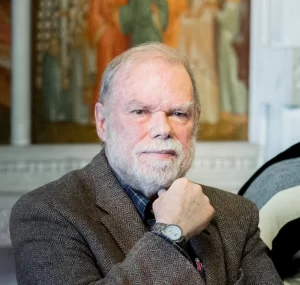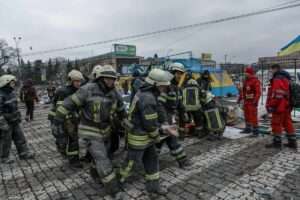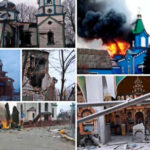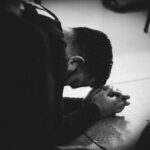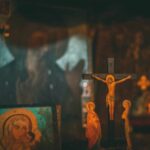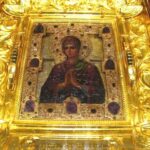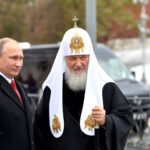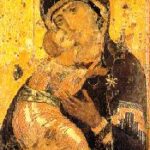Recommended Reading – Winter 2011 / IC 59
Atheist Delusions
by David Bentley Hart
Yale University Press, 272 pages, $17
David Bentley Hart, an Orthodox theologian and classicist, outlines how Christianity transformed the ancient world in ways that are now taken for granted, forgotten, dismissed or misrepresented, conferring dignity on ordinary (generally poor) human beings and gradually ending or modifying for the better many of the harsher aspects of classical society while establishing compassionate care for others as the highest virtue.
Hart knows the classical world nearly as well as the world he actually lives in. The Glory that was Greece and the Splendor that was Rome was, Hart shows convincingly, astonishing cruel.
The book puts to rest many myths about the past. Contrary to popular opinion, Hart shows that Christians did not burn the Library of Alexandria, torture millions during the Inquisition, persecute Galileo for daring to propose the earth was in orbit around the sun, or wreak havoc across Europe during the Reformation. Rather Christianity gave the world hospitals, the foundations of modern science, and the moral framework to regard all life as worthy of life.
Hart goes on to demonstrate that what many like to think of as “The Age of Reason” was more accurately the beginning of the eclipse of reason’s authority as a cultural value. Finally he warns of the nightmarish consequences of the decline of Christendom as a culture force.
Christianity was, writes Hart, the only true revolution in history, changing everything from the bottom up:
“Stated in its most elementary form, my argument is, first of all, that among all the many great transitions that have marked the evolution of Western civilization, whether convulsive or gradual, political or philosophical, social or scientific, material or spiritual, there has been only one – the triumph of Christianity – that can be called, in the fullest sense, a ‘revolution’: a truly massive and epochal revision of humanity’s prevailing notion of reality.”
Atheist Delusions is a tour de force. One might only wish it had a different title – The Christian Revolution – as it is less an attack on such popular atheist writers as Christopher Hitchens and Richard Dawkins than a book that polishes the glasses through which we see the past.
-- Jim Forest
The Isle of Monte Cristo:
Finding the Inner Treasure
by S.T. Georgiou
Novalis, 304 pages, $25
With The Isle of Monte Cristo Georgiou brings to a close the trilogy begun first with The Way of the Dreamcatcher and then Mystic Street. This most recent title continues the grand adventure which began in 1993 when Georgiou quite literally fled from Northern California to the island of Patmos in the Aegean seeking some kind of resolution in a life which had become more and more contradictory and frustrating. Taking himself to Skala, the little port of Patmos, he asked a passerby in the street for directions, who suggested that he look up a poet by the name of “Pax,” and so he did. Only, he quickly discovered that the poet’s surname was actually, “Lax,” or Robert Lax.
That evening a totally unexpected meeting was the beginning of a a series of conversations that would extend over several summers, leading Georgiou into the most interior places of his heart, revealing the unimaginable reality of the divine likeness at the very core of each of us.
In his story, this first of many meetings with Robert Lax becomes one of many encounters, coincidences, which will echo and re-echo in the search on which he has embarked. And always, the search is for the Christ, who described Himself as “the way, the truth and the life.”
I am reminded repeatedly in Georgiou’s narrative that the work of the theologian is much more than an active and diligent pursuit of learning. It is also the experience of that learning in a mysticism always nurtured by learning, as it in turn nurtures learning. There is only the slightest reference to the passage in Athanasius’s Incarnation of the Word of God that “God became man so that man could become like God,” but in making this reference, Georgiou asserts the wonder of the search and the joy of finding in himself the presence of God.
Seeking the image of God in his own being, Georgiou finds solitude repeatedly in the beauty and wonder of nature, which he also comes to find as yet more a revelation of the creative magnificence of God’s love.
As we seek the mystery of transfiguration, we cannot help becoming more and more that likeness of God, because ultimately, everything created is saved and transfigured by beauty.
Harold Isbell
Orthodox Christianity at the Crossroad
George E. Matsoukas, editor
Iuniverse, 112 pages, $13
This is a collection of five papers delivered in 2007 at a celebration of the 20th anniversary of Orthodox Christian Laity. Themes of thanksgiving and hope, matched by perseverance in faith concerning plans and promises of a Pan-Orthodox Council, mark each chapter.
Along with George Matsoukas, the editor, contributors include respected lay and clerical leaders from Russian, Romanian, Greek and Serbian Orthodox jurisdictions as well as the Orthodox Church in America.
As the editor states, “These papers give the reader a greater understanding of Orthodox Christianity worldwide and why a Great and Holy Council was not convened in the twentieth century.”
One highlight: John Erickson outlines debates over the primacy of Constantinople as Patriarch in a chapter that provides sufficient remarkable nuance.
Ioannis Freeman
Remembering and
Reclaiming Diakonia
by John Chryssavgis
Holy Cross Orthodox Press, $23
This book recalls days gone by when the diaconate meant far more than the deacon’s role during Church services. Chryssavgis (himself a deacon since 1984) makes a convincing case to reclaim the fullness of service that deacons were meant to provide. The author speaks plainly and draws on numerous illustrations from our contemporary world to invite readers from all walks of life.
This book breaks critical ground about the office of deacon in Church history and lays a solid theological foundation for the diaconate, with superb interpretation of Holy Scripture and the Church Fathers. In addition to engaging remarks about deacons working among the poor and extensive discussion of women deacons, some of the author’s most compelling reflections appear in discussions of the deacon as related to an active local community.
Ioannis Freeman
Speaking the Truth in Love:
Theological & Spiritual Exhortations
by Ecumenical Patriarch Bartholomew
John Chryssavgis, editor
Fordham University Press, 464 pages, $35
The present text is the second of three volumes to be published by Fordham University Press of addresses, encyclicals, sermons, and other writings by His All Holiness Bartholomew, the Ecumenical Patriarch of Constantinople. In the book’s foreword, Rowan Williams, Archbishop of Canterbury, explores two themes that he identifies in the text: an orientation toward a global identity by the Orthodox Church as opposed to prisons of local or ethnic make-up; and a pervasive and penetrating engagement of Church in the world and for the world as an extension of Christ, the Church’s Head, and His kenosis.
The book provides courageous and conciliatory messages of hope. Each selection demonstrates sound Orthodox theology and Christology while engaging in an ecumenical mission that has been tested by fire over the past two decades. Readers will appreciate the author’s vision, such as that we should “never grow tired of conversing with those of good faith who ask the reason of the hope that we have within us.”
Ioannis Freeman
The Friends We Keep: Unleashing
Christianity’s Compassion for Animals
by Laura Hobgood-Oster
Baylor University Press, 230 pages, $20
This book argues that Christians’ compassion toward animals urgently needs “unleashing.” Given the immense number and kinds of animals, Hobgood-Oster organizes her historical inquiry into three domains: animals as companion pets, as connected with sport, and as food.
The author appeals to oral traditions, popular literature, varied artifacts from sacred buildings (such as stained glass windows, statuary, icons, and lives of saints) to illustrate a rich legacy of love and care for animals among Christians. Pets and domesticated animals receive the greatest attention. As for animals as food source, though the author is herself a vegan, she carries no torch when advising others, except to consider occasional meatless days. The book concludes with an excellent group discussion guide and liturgical resources.
Ioannis Freeman
* * *
For this is the Good One,
who could have forced
us to please him
without any trouble to himself,
but instead he toiled by every means
so that we might act pleasingly to him of our own free will,
that we might depict our beauty
with the colors that our own free will had gathered,
whereas, if he had adorned us, then we would have resembled
a portrait that someone else had painted,
adorning it with his own colors.
— St. Ephrem the Syrian (+373)
St. Ephrem was born about 306. Some say his family was Christian while others say his father was a pagan priest of the goddess Abizal. He was baptized as a young man by Bishop Jacob of Nisibus, a participant in the First Council of Nicea in 325. Later ordained as a deacon, Ephrem is said to have escaped consecration as a bishop by pretending to be insane. When Jovianus ceded Nisibus to the Persians in 363, Ephrem and many other Christians moved to Edessa where he died in 373 while ministering to people who had the plague. He wrote over a thousand poems. Many of his works are difficult to translate because of their complex structures, images, word plays and parallels. Scholars question the authenticity of all texts attributed to the “Harp of the Faith,” a name frequently given to Ephrem, since many exist in Latin translation only. Ephrem wrote polemical verse defending the faith against gnostics and Arians. He was devoted to the Theotokos and wrote much in her praise. His Sermons on Faith are metrical homilies. He wrote prose commentaries on the Old Testament and on the Epistles of St. Paul. He annotated the Greek-Syriac New Testament Diatessaron. His descriptions of heaven and hell are said to have inspired Dante.
* * *
❖ IN COMMUNION / Feast of St. Ephrem the Syrian / Winter 2011/ Issue 59

